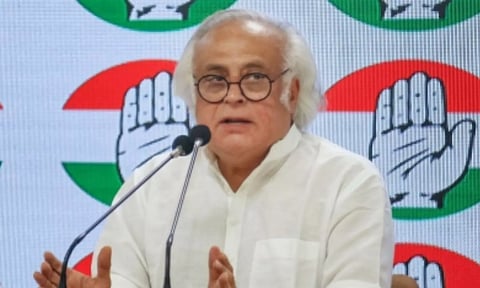

NEW DELHI: A day after the Law Commission sought suggestions of public and recognised religious organisations on the Uniform Civil Code (UCC), Congress on Thursday termed it Modi Government's "desperation for a legitimate justification of its continuing agenda of polarization and diversion from its glaring failures".
In a statement, Congress general secretary Jairam Ramesh said that the 22nd Law Commission of India notified its intention to examine the UCC. This was being done, on a reference sent by the Ministry of Law & Justice.
"It is strange that the Law Commission is seeking a fresh reference when in its press release it acknowledges that its predecessor, the 21st Law Commission had published a consultation paper on the subject in August 2018," Ramesh said.
He also said that no reasons are given for why the subject is being revisited except for vague references to "the relevance and the importance of the subject and also the various court orders".
The real reason is that the 21st Law Commission, after carrying out a detailed and comprehensive review of the subject, observed that it is "neither necessary nor desirable at this stage" to have a Uniform Civil Code.
"This latest attempt represents the Modi Government's desperation for a legitimate justification of its continuing agenda of polarization and diversion from its glaring failures," Ramesh said hitting back at the government.
He highlighted that the 21st Law Commission in para 1.15 of its 182-page 'Consultation Paper on Reform of Family Law' submitted on August 31, 2018 said,
"While diversity of Indian culture can and should be celebrated, specific groups, or weaker sections of society must not be dis-privileged in the process. Resolution of this conflict does not mean abolition of all differences.
"This Commission has therefore dealt with laws that are discriminatory rather than providing a uniform civil code which is neither necessary nor desirable at this stage. Most countries are now moving towards recognition of difference and the mere existence of difference does not imply discrimination, but is indicative of a robust democracy."
Ramesh said that the Law Commission has produced an enviable body of work over the decades on numerous issues of national importance.
"It should be mindful of that legacy and remember that the interests of the nation are distinct from the political ambitions of the BJP," he added.
His remarks come a day after the Law Commission published a notice soliciting views and ideas of the public at large and recognised religious organisations about the UCC.